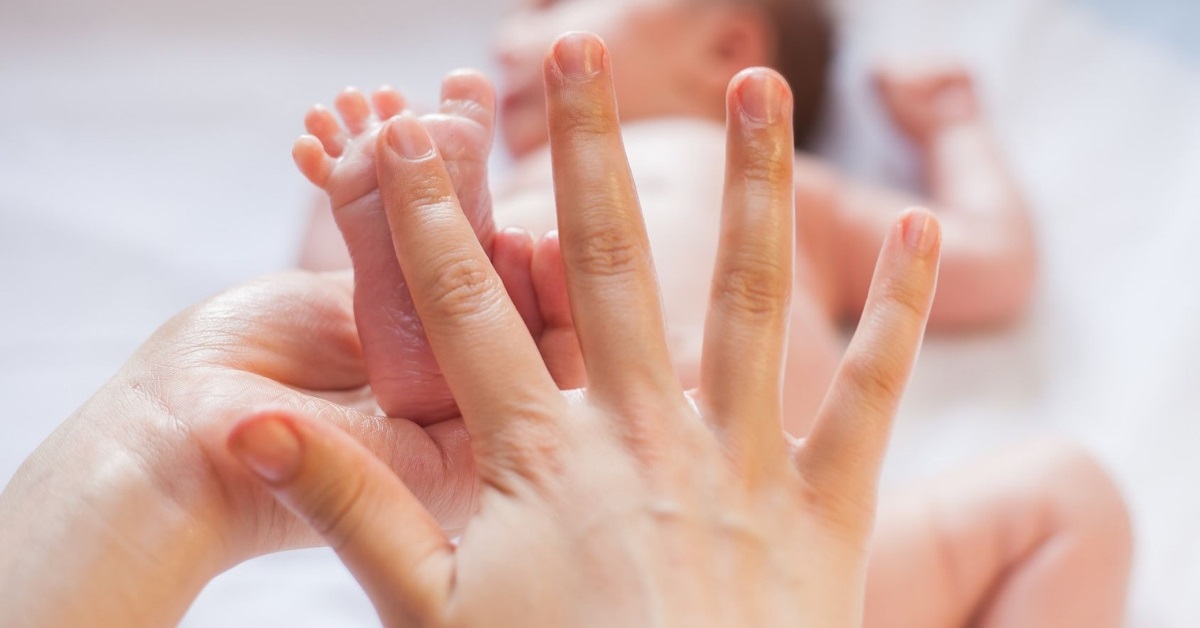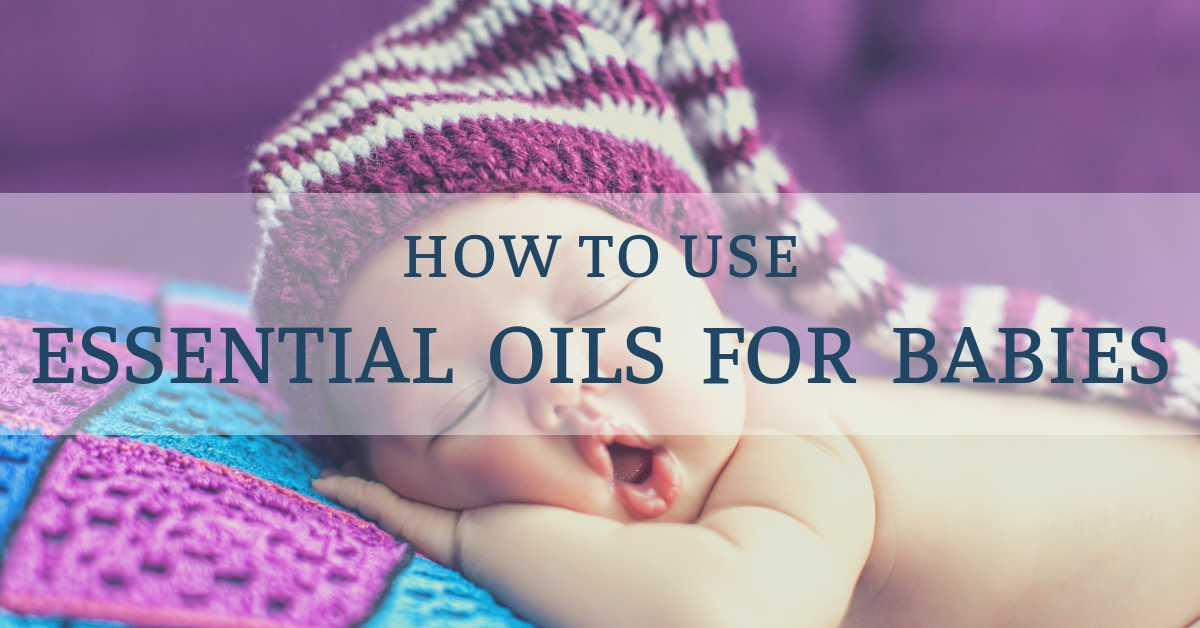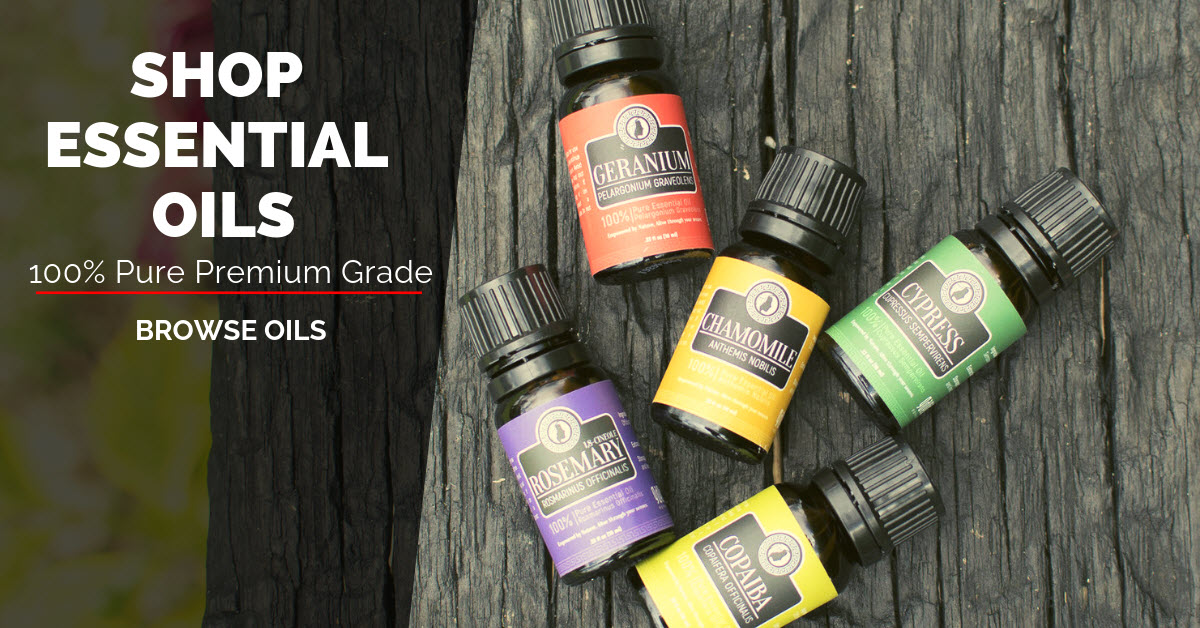Using essential oils for infants is a complex issue which needs to be looked at from three different levels. Not all are to do with the safety of the oils themselves, per se. There is a much bigger picture that needs to be thought about, but which often gets overlooked.
Consequently, the internet is littered with conflicting information and evidence.
First let’s think about the issues in turn and then delve in more deeply.
- Safety of the constituents themselves on tiny bodies.
- Infant’s new skin.
- The larger picture of the infant’s capacity to bond with mom.
I placed them in this order because to the untrained eye the first point will seem to be the most important, but to get a better all-round view point, let’s look at the last point first.
Infants Bond With Mum Through Smell
But by the time they are born that relationship is already very old and well cemented.
Actually, the bond began in-utero, long before he took his first gasp of air.
Recent evidence shows olfactory neurons begin to form at as early as seven weeks gestation. Nasal cavities form, and then, soon after passageways open, connecting the nose and mouth, meaning that they can now connect the smell / taste sensation.
The trigeminal nerves develop which allow them to discern hot and cold fragrances such as chili and mint.
When you consider how closely our sense of smell is linked to the limbic system, the primitive part of our brain which controls our emotions, learning and memory, it is fascinating to discover that all this is already in place by the time that baby’s nostrils form at 10 weeks.
However, thus far, the information can enter, but it has nowhere to go yet, until the olfactory receptors form between 10-12 weeks. Now the pathways form, connecting the receptors to the parts of the brain that will go on to process, recognize, and react to the smells.
Initially, baby swallows the amniotic fluid, and this begins at around 25 weeks of the pregnancy, but by around 32 weeks, baby has learnt to breathe it even though, actually, he has all the oxygen he requires from the placenta and the umbilical cord. This, seemingly, superfluous action prepares him for the new respiratory process he will come to rely upon after birth.
Research leads us to suspect that babies begin to react to smell at around six months and are very actively invested in them by around eight months of their gestation.
Over the coming weeks they will begin to recognize and connect with mum’s favorite foods, and by the time they are born, babies are able to recognize over a trillion different fragrances; many of them derived from the sweet, spicy and savory fragrances which swish around inside of the womb (1).
What’s more, some evidence suggests they may even recognize the smell of some of the creams and lotions we put onto our skins during pregnancy, allowing them to build a really comprehensive picture of the person their mother will be.
And this beautiful portrait, formed in his mind’s eye, travels with him down the birth canal (or out of the sunroof, for those delivered by cesarean!) out into his brave new world, giving him confidence of connections that he has already made.
This advanced processing means he develops a unique relationship with mum through smell. During those first days he navigates the world almost completely by aroma, searching for mother through her unique fragrance. It comforts him to sleep and encourages him to eat.
Studies show he will still be able to recognize the fragrance of his mother’s amniotic fluid after he is born and remarkably at two weeks old, he will still be able to discern the aroma of hers over someone else’s.
It’s truly amazing, since the early breast milk she makes – the colostrum – smells very similar to this familiar fluid, encouraging him to feed and bond quickly with someone his brain tells him he already knows.
Conversely, it is poignant to know that mum can also distinguish her baby’s smell from that of others too. Oddly, this is well developed at three days post-natal, seems to subside through four and five and then improves after day eight. Whilst scientists have no answers to why this might be, perhaps it gives baby and the extended family more of a chance to bond too.
So: here’s the first point:
Using strong fragranced products of any description disrupts a baby’s ability to seek out mum. They are disorienting to him, get in the way of bonding and are ill advised.
Given this, the same applies to your own personal care products. Think twice before using strong perfumes and deodorants for example. Use essential oils on your own body in the very subtlest dilutions.
Rose Oil and Post Natal Bonding
That said, there is definitely an argument for integrating aromatherapy into your post – natal routine. Essential oils can help to make breastfeeding easier and help to balance hormones in those delicate first few weeks, not least because of a strange stress hormone called cortisol.
Cortisol is released when we are stressed and when working correctly, is anti-inflammatory and very helpful to our nervous system and physical health.
Problems arise, however, if we suffer long term stress, then cortisol seems to turn on its axis and begin to act as an inflammatory agent.
Cortisol then, negatively affects all of our physical functions and has a deleterious effect on health, not least from anxiety and depression.
Strangely, a baby’s cortisol function does not react to stress. Rather, it mimics the mother’s levels. So, if she is very upset then baby will become upset too. This strange link will continue until its own stress system takes over when he is about two years old.
Rose oil has been used since the very earliest days of its discovery, in Persian medicine (2), as a mood stabilizer (3) and hormone balancer.
We now understand that rose reduces levels of cortisol (4) , protecting both mum and baby from, not only upset, but the terrible hormonal onslaught that cortisol can cause.
Baby’s Newly Formed Skin
Infants, and particularly neonates have under developed skin, which will not fully develop until around six months old.
The immature outer layer, the epidermis, is delicate and extremely vulnerable to trauma and sensitization (5).
Current thinking is that essential oils may be too strong to put onto new born babies’ skins.
Essential Oil Safety for Infants
One of the key areas that aromatherapy struggles with, at the moment, is the lack of scientific studies done to see how an essential oil will act in a human body.
Clearly, it is unlikely there will be some instances where we will ever get that data. One of these is for usage on infants and fetuses, because it would be ethically unsound to do these kinds of experiments on such tiny beings.
Consequently, we must rely on the safety data we have for adults (or often for animals!) and then make decisions based on those. It’s not an easy thing to do and common sense must play a very large part.
We may never be able to properly discern how sensitive infants are to these fragrances, or how their little livers will manage to detoxify them after they have absorbed through an underdeveloped epidermis.
For these reasons we must progress with compassion and always err on the side of caution.
Far from being an absolutely no-no though – because they certainly have their uses – I would suggest asking yourself
- How much do I need to use the oils?
- Is it an emergency?
If not…find another way.
Read next: How to actually use essential oils for babies?
The Bottom Line
For the most part essential oils are best avoided on infants because a loving relationship with mum is far more important to their development. However, using the very tiniest amounts in emergencies can make life a great deal easier for both parent and child.
Read more:
- How To Use Essential Oils For Babies – Your Complete Guide
- Essential Oil Safety For Breastfeeding – Do’s and Don’ts
Works Cited
[1] Benoist Schaal, Luc Marlier, Robert Soussignan. Human Foetuses Learn Odours from their Pregnant Mother’s Diet. s.l. : Chemical Senses, 2000.
[2] Safieh Mohebitabar, 1 Mahboobeh Shirazi,2 Sodabeh Bioos,1 Roja Rahimi,3 Farhad Malekshahi,4 and Fatemeh Nejatbakhsh1,. Therapeutic efficacy of rose oil: A comprehensive review of clinical evidence. s.l. : Avicenna Journal of PhytoMedicine, 2017.
[3] Farnia V1, Hojatitabar S2, Shakeri J1, Rezaei M3, Yazdchi K4, Bajoghli H5, Holsboer-Trachsler E6, Brand S6. Adjuvant Rosa Damascena has a Small Effect on SSRI-induced Sexual Dysfunction in Female Patients Suffering from MDD. s.l. : PharmacoPsychiatry, Jul 2015.
[4] Fukui H1, Komaki R, Okui M, Toyoshima K, Kuda K. The effects of odor on cortisol and testosterone in healthy adults. s.l. : Neuro Endocrinology Letters, 2007.
[5] Fernandes JD1, Machado MC, Oliveira ZN. Children and newborn skin care and prevention. 2011 : An Bras Dermatology.



